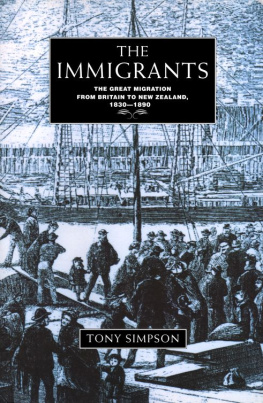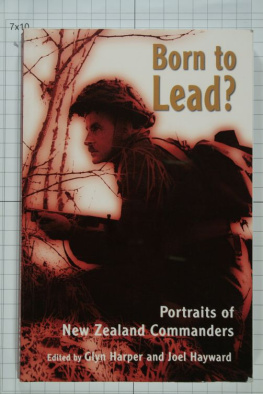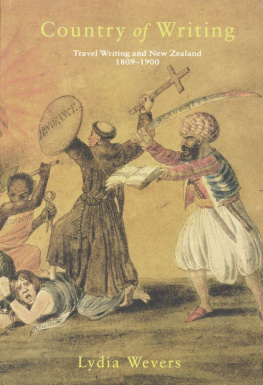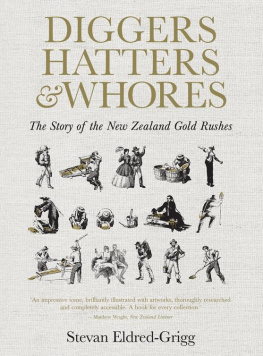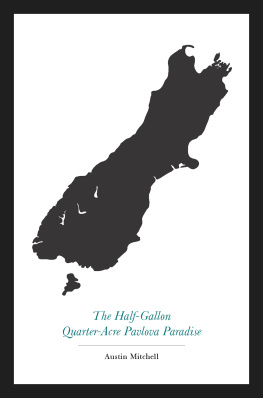Johnny Jones
A Colonial Saga
Diana Harris
Copyright Diana Harris, ebook edition 2016
First published in print edition by Reed Publishing, 2007
Diana Harris asserts her moral right to be identified as the author of this work.
All rights reserved. No part of this publication may be produced or transmitted in any form or by any means, electronic or mechanical, including photocopying, recording or information storage and retrieval systems, without permission in writing from the copyright holder.
Ebook edition published by Flaxhead Press 2016
The author gratefully acknowledges the assistance of the Alfred and Isabel Reed Trust, administered by the Otago Settlers Association, towards the publication of the original book.
Cover picture: Oil painting of Johnny Jones: Hocken Collections, Uare Taoka o Hakena, University of Otago, nge 805 15/6/b. Cover design: Anita Taylor
Publishing services provided by Digital Strategies Ltd
A catalogue record for this book is available from the National Library of New Zealand.
Theres a small town on this coast
And its people often boast
Of the good old days that used to be
When Johnny Jones was king, and he reigned alone supreme
Over all the land as far as you could see
Sung by Jack Allen at a concert, Waikouaiti, 1930s
The history of nations often begins in a legendary period with truth and fiction so tangled and interwoven that no distinction between them is possible. It is the same with the lives of some individuals.
RM Burdon writing about Johnny Jones in New Zealand Notables, 1941
One story is good till the other is told.
Johnny Jones to John Orbell, Waikouaiti, 1854
Contents
When I was a little girl at school we listened to recorded stories about well-known New Zealanders. One day I went home and told my mother that today we had heard about a horrible man called Johnny Jones. That is your great-great-great grandfather, she replied, and he wasnt as bad as they say.
In 1989, after reading my grandfathers old books about Otago, I began my voyage of discovery, researching and writing Jones story. Along the way many people have helped me, and to them I say thank you.
I would particularly like to mention, on the Jones side, Bill Isaac, great-grandson of Johnny; Alfred Jones of Melbourne, Garth Cockerill and Pat White. John Jones of Otago, by Alfred Eccles and AH Reed, has been a rich source of information.
On the Orbell side, I owe a great debt to C. Holmes Millers Sturdy Sons, Macleod Orbells Reminiscences, Catherine (Kate) Orbells Journal and Dr GB Orbell and Eric Orbells compilation of the Orbell family tree. Maxwell Miller of Melbourne, Patrick Miller, and David Allen in England have added to my knowledge of the Orbell family.
The research by Ian Church of Port Chalmers into the ships owned by Jones and his early life has been invaluable, and the Hocken Library and the Otago Settlers Museum have both been extremely helpful. I have also obtained information from the Alexander Turnbull Library, Wellington, and the State Archives of New South Wales, Sydney.
I would also like to thank my husband, Patrick Harris, for his patience, help and encouragement over the 16 years it took to complete the project.
In order to give the reader a sense of being there, some of the episodes described in this book have been dramatised, but they are based on extensive research. Notes at the end of this book contain extra information, give the source of material, query statements made by other historians or explain what happened subsequently: all of which add to the layers of knowledge, mystery and confusion that accumulate during a walk in the past.
Some people may wonder why there is such emphasis on describing what was happening in the Maori world during Jones lifetime, but I hope by the end of the book they will understand.
Was Johnny Jones good or was he bad? I have told the story to the best of my ability, and now I leave you to decide.
Diana Harris
Oakridge Farm
Part One: Adventures and Acquisitions
A hell-hole beyond the seas
Sydney, 1826
It is early morning and across the blue waters of Port Jackson a young man is rowing. He pulls hard on the heavy wooden oars and as he draws nearer we see his boat is full of tree branches, neatly chopped into lengths the better to fit as many as possible into the small space. Since he is moving at a good rate in spite of the load on board, we can assume he is strong. From behind all that can be told of his appearance are his dark curly hair and broad shoulders, but when he turns his head briefly to check his direction we see he is a lad of about seventeen with rosy cheeks the colour of poppies.
He continues to pull on his oars, passing the prison island of Pinchgut. Finally he rounds the grim tower of Fort Macquarie on Bennelong Point and enters Sydney Cove, which is abristle with the masts and riggings of many vessels. He ducks between them and heads for a shallow landing place where with a deft turn of the wrist he manoeuvres his craft as close to the shore as possible. Quickly he hops out of his boat, pulls it further into the shore and empties it of its cargo. Then he gathers up a bundle of firewood that seems too large even for his sturdy frame and staggers with it to one of the storehouses. He carries in three more loads, returns to his boat and this time sluices it out with sea water. Finally he rows over to one of the ships anchored in the bay, where he ships his oars.
Suddenly he turns in our direction with a scowl, as if aware that someone is watching him, and there is a flash in his large dark eyes that tells us anger is an essential part of his being. Then he bangs on the side of the ship and waits for his main days work to begin.
*
Johnny Jones was born into one of the most feared and hated places on earth. Sydney was the hell-hole beyond the seas where people from Great Britain were sent for such heinous offences as stealing three teaspoons or a handkerchief, or money worth less than 40 shillings (if you stole more than the allotted amount you were hanged).
After the outbreak of the revolution in North America in 1775 the Mother Country could no longer send her convicts there the colonists refused to accept them, and besides, they now had enough free labour via the slave trade and so she needed to find somewhere else to offload her unwanted citizens. With the claiming of Terra Australis for the British Empire by Captain James Cook another dumping ground was found, this time even further away from home. In 1788 Governor Phillip arrived with the first of the ships and set up camp, not at the recommended Botany Bay, which was bleak and inhospitable, but in the pretty, north-facing cove he named Sydney, in the harbour called Port Jackson.
In Britain by the end of the 18th century, with industrialisation taking jobs from craftsmen, and the collapse of the rural economy and the enclosure of large tracts of countryside by landowners sending the peasants flooding into the towns, there was a floating population of unemployed people who had no means of supporting themselves other than by stealing. The middle and upper classes were terrified of the mob, fearing violence and revolution of the kind witnessed across the Channel in France in 1789. And so the government, which largely consisted of property-owners and local squires, decided to deal with the problem by making even the most minor theft of property a criminal offence. Those they did not kill by hanging were transferred in large numbers into prisons and hulks old warships languishing in the harbours and then transported en masse to Australia in a sort of class-cleansing operation.



